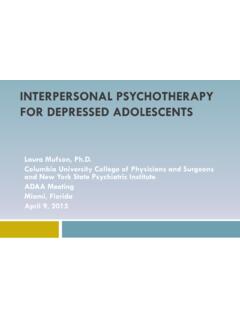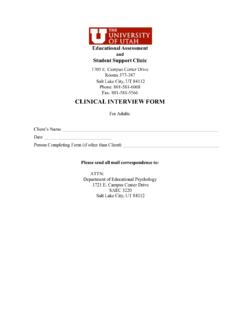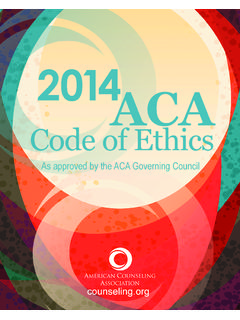Transcription of Encouraging Family Involvement through Culturally …
1 Encouraging Family Involvement through Culturally Relevant Pedagogy Kela Goodman: University of South Carolina Upstate Laura Hooks: University of South Carolina Upstate The purpose of this article is to describe one teacher education program s experience using an integrated approach to provide preservice teachers with both knowledge of and experience with diverse cultures. Included are three important components within this program that strive to assist preservice teachers as they develop an understanding of different cultures and working with families. First, we discuss research in parent/ Family relationships (Allen, 2007, 2010; Epstein & Sanders, 2006) and Culturally relevant pedagogy (Gay, 2000; Villages & Lucas, 2002).
2 Second, we provide descriptions of five instructional strategies that preservice teachers implement. Third, we offer strategies for supporting emerging bilingual students. amily Involvement and the formation of school and home partnerships have proven beneficial to children s development and learning. Knowing and understanding one s own culture and cultures other than one s own enable teachers to create an inclusive environment that welcomes everyone and lays the groundwork for strong partnerships among families and schools. Teacher education programs are responsible for preparing students to work with all children and their families.
3 This preparation includes both factual knowledge as well as strategies for applying cultural competencies to a Culturally relevant and responsive teaching practice. The purpose of this article is to describe one teacher education program s experience using an integrated approach to provide preservice teachers with both knowledge of and experience with diverse cultures. The program strives to nurture and develop an understanding of cultural diversity and what it means to early childhood teachers. Included are three important components within this program that strive to assist preservice teachers as they develop an understanding of different cultures and working with families.
4 First, we discuss research in parent/ Family relationships (Allen, 2007, 2010; Epstein & Sanders, 2006) and Culturally relevant pedagogy (Gay, 2000; Villages & Lucas, 2002). Second, we provide descriptions of five instructional strategies that preservice teachers implement to demonstrate the connection between research and practice. Third, we offer strategies for supporting emerging bilingual students. Parent/ Family Involvement Research supports the value of parent- Family Involvement in education (Comer, 2010; Epstein, 1995 & Swick, 2003). Historically, parents were not included in school decisions and schools did not interfere with parenting.
5 In the later part of the 20th century theorists such as Uri Bronfenbrenner (1979) demonstrated through his ecological theory the connection between school, home, F SRATE JournalSummer 2016, Volume 25(2)Page 33community, country, and even the world regarding children s development and education. Attitudes and responsibilities began to change as research demonstrated the value of parent Involvement in their children s education (Comer, 2010; Epstein, 1995; Epstein & Sanders, 2006; Powell & Diamond, 1995). Swick (1993, 2003 & 2004) recognized the need to partner with and empower parents by listening to their concerns and possibly solutions.
6 Culturally Relevant Pedagogy Culturally relevant teaching derives from pedagogy which capitalizes on cultivating relationships that connect home and school cultures, social interactions and expectations for learning and the belief that knowledge is socially constructed and changing (Gay, 2000). Basic tenets of Culturally relevant pedagogy include attention to the achievement of children who have been minoritized and marginalized, constructing curriculum and instructional practice in ways that draw on and include the knowledge, histories, and communicative styles of those outside as well as within the dominant culture, and developing children s abilities to use learning to affect social change (Gay, 2000; Ladson-Billings, 1994, 2001).
7 While research tells us that all students must learn the languages and practices of the dominant culture (Freire, 2001; Johnson, 2006; Kincheloe, 2008), we also know that students extensively limited in their cultural congruence with the dominant class teacher and set of classroom materials can and will learn more effectively when the resources of their communities are honored (Fu, 2003; Gay, 2000; Samway & McKeon, 2007, Vald s, 2001). Early childhood education students are prepared to understand that home languages, L1, are foundational to second language, L2, usage in social and academic settings (Garcia & Wei, 2014; Gonz lez, Moll, & Amanti, 2005).
8 Thus, many teacher education programs offer Culturally relevant pedagogy as effective teacher practice (Gay, 2000; Villages & Lucas, 2002). Preservice Teacher Education Program and Participants Consistent with the international character of the Upstate, the University promotes global perspectives across its programs. Supporting the regional employment objectives of most of its students, the University provides extensive experiential learning opportunities. Junior level early childhood majors take six co-requisite integrated courses that include: parent/ Family Involvement , language development, early childhood curriculum; advanced growth and development; assessment, diversity and management; and a clinical course.
9 The clinical component of their course work is completed at a public school child development and Family learning center serving low income families. The demographics of the population served as reported in the 2013-2018 school district strategic plan are 42% Caucasian, 33% Hispanic, 22% African American, and 4% Other with 28% having a primary language other than English (GCS Strategic Plan). Programs in the center include six 4 year old kindergarten classrooms, three preschool special education classrooms serving 3 to 5 year olds with disabilities, a part-time school nurse, one full time speech therapist and one part-time speech therapist.
10 Additionally, high school students come to the center for a portion of the day to fulfill service learning projects. This program is part of the public school system where students will transition into five-year-old kindergarten classes. SRATE JournalSummer 2016, Volume 25(2)Page 34 Connecting Research to Practice It is important to expose preservice teachers to diverse cultures and help them begin to embrace home cultures of their students and build confidence in working with parents . This multifaceted project began with one university early childhood program and a child development and Family learning center located in a public school.
















